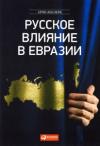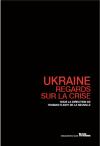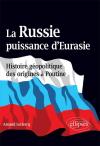Russia and EU: intracontinental drift
Lover's tiffs or finalised divorce?
“The crisis we are witnessing in the Eurozone is not just about sovereign debt. I believe its roots run much deeper – in part, its nature is political, in part technological, and to some extent it is caused by systemic integration issues… The European Union has failed to become a real federation, having all the federation’s drawbacks and none of its advantages.” This strong statement, made by Vladimir Putin on 25 October 2012 at a Valdai International Debate Club meeting, sums up Russia’s opinion of the EU: ‘you are no role model for us.’
In this context, it is no surprise that all attempts of Europe, with its variable geometry, to lecture Russia on human rights and democracy are viewed by the latter as hypocritical moralising. It’s hard to deny that the Russian bureaucracy is corrupt, but aren’t there any corrupt politicians in Europe? Russia’s violent repression of Chechnya is egregious, but so are Europe’s colonial wars, and the US’s invasion of Vietnam and subsequent deployment of troops in Iraq under the pretext of eliminating a threat of mass destruction weapons that were never found. This political ping-pong between the West (Europe in particular) and Russia could go on forever.
Reappraisal of values
Assuming that Russia has always been different from Europe, its perceived affinity to the Western neighbour being but a temporary misconception, the West (and the EU in particular) should be viewing it through the lens it has always used for countries and civilisations of a more striking otherness. Without requiring that the parties are to forego any mutual requirements and expectations, it does imply an open-minded approach allowing both to accept the other’s differences, however shocking they might be at first glance.
It seems that, in order to regain a position of equals amongst the concert of Western countries, Russia needs to clearly communicate its ideology and values to the other nations.
In search of lost time
All disagreements between the EU and Russia have so far been politically and diplomatically conditioned. The new Russian Military Doctrine adopted in 2010 rates NATO expansion as a primary national threat. Historically, Russia has always regarded any territorial claims to itself or its allies, as well as any show of military power at its borders, as a direct provocation. The Kremlin is equally irritated by domestic attempts of interference from NGOs, despite the validity of their concerns, due to their dubious funding sources and ultimate political aims.
In spite of the oft-hyped differences between Russia and the EU (including those on the Magnitsky and Pussy Riot cases), the two remain strongly interdependent – Russia is still the EU’s third-largest trade partner. Under the circumstances, the current non-constructive dialogue is highly unfitting and might eventually drive apart the Eastern and the Western sides of the Eurasian continent.
Russia’s current economic situation, being far from perfect, is almost equally far from the Euroland crisis. Its 2012 GDP growth rate (3.6%), though admittedly lower than that of 2011 and 2010 (4.5%), has nevertheless been staying the course. Moreover, Prime Minister Dmitry Medvedev announced an ambitious goal of restoring the 5% rate at the 2013 Krasnoyarsk Economic Forum, adding that Russia is also on track to become one of the world’s top 20 countries for doing business. Unfortunately, the EU officials have always been all too eager to judge foreign developments much talked of and little understood by the press. In reality, Medvedev plays the ‘good’ pro-Western guy, while Putin has assumed the role of the ‘bad’ reactionary – which has never prevented the two from working as a team to pull the country back together after Yeltsin’s disastrous rule.
Russia on team emerging
Thus, having grown tired of Europe’s rants and sallies, Russia set its geopolitical course for Asia. Japan, which has recently committed to phasing out nuclear power, is starving for Russian energy carriers, which therefore have a considerable margin potential here compared to the Western markets. The power appetite of China, whose GDP grew 7.5% in 2012, is also quite voracious. According to PWC’s World in 2050 report, China will surpass the US in purchasing power parity as soon as by 2017. By 2050, India will become the world’s third-largest economy, leaving Brazil (fourth-largest) far behind, and Japan will round out the top five. As to Russia, it may beat Germany in purchasing power parity by 2020. Overall, the developing countries’ economies, in particular those of Mexico and Indonesia, will outgrow the developed ones (the UK and France), and Turkey will outstrip Italy. Remaining a full-fledged member of G7, Russia has already cast in its lot with the future leaders – other developing countries. It won’t be long before the Eastern team, which has already been dubbed E7, becomes the main players on the global economic scene, while Russia is finally be free from its ill-starred marriage with Europe.
Arnaud Leclercq








